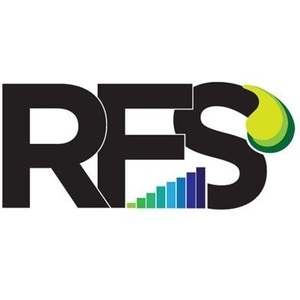AFPM requests partial waiver of cellulosic biofuel RVO for 2024

November 6, 2024
BY Erin Voegele
The American Fuel & Petrochemicals Manufacturers on Nov. 1 petitioned the U.S. EPA to waive a portion of the compliance year 2024 Renewable Fuel Standard renewable volume obligation (RVO) for cellulosic biofuel.
In its petition, AFPM claims the waiver is necessary due to a shortfall in cellulosic biofuel production. The organization is also asking EPA to make available cellulosic waiver credits.
Advertisement
“EPA’s failure to exercise its waiver authorities and make credits available will harm U.S. refineries and consumers and create additional volatility in the cellulosic RIN market,” AFPM wrote in the petition. “AFPM also requests that EPA take concrete steps to address the wholly insufficient RIN bank for cellulosic biofuel, consistent with the information that AFPM has provided regarding the 2023 and 2024 cellulosic biofuel production shortfalls.”
RFA regulations allow the EPA to waive cellulosic biofuel RVOs when production falls short of the agency’s projections. AFPM issued a similar petition in late 2023 seeking a partial waiver of compliance year 2023 cellulosic biofuel RVOs. The EPA in March 2024 denied that petition.
Advertisement
Within its Nov. 1 petition, AFPM cites calculations completed by Turner, Mason & Co. that estimates the 2024 cellulosic RVO at 1.092 billion renewable identification numbers (RINs). AFPM predicts 1.035 billion cellulosic RINs will be generated in 2024, with a 2023 cellulosic RIN carryover of 30 million, resulting in an 88 million cellulosic RIN shortfall. AFPM cited similar calculations in its 2023 petition. In denying that petition, the EPA said AFPM’s calculations appeared to use the same data sources as its internal assessment, but stressed that the calculations did not seem to follow the same methodologies as those used by EPA. For example, AFPM had excluded cellulosic RINs that had already been retired from its calculation of net cellulosic RIN production and failed to exclude volumes of non-obligated transportation fuels from its calculations.
In its 2023 rulemaking that set RFS RVOs for 2023, 2024 and 2025, the EPA set the 2024 RVO for cellulosic biofuel at 0.63%. At that time, the agency estimated the 0.63% RVO would require 1.09 billion cellulosic RINs to satisfy. The actual number of RINs required to meet the RVO is dependent on the volume of obligated transportation fuel supplied to the U.S. market during the compliance period. The most recently available RIN data published by the EPA indicates that 638.48 cellulosic RINs were generated under the RFS during the first nine months of 2024.
A full copy of the AFPM’s petition is available on the EPA website.
Related Stories
More than 1.76 billion renewable identification numbers (RINs) were generated under the Renewable Fuel Standard in January, down from 1.91 billion generated during the same period of 2024, according to data released by the U.S. EPA on Feb. 20.
The U.S. EPA on Feb. 20 released updated small refinery exemption (SRE) data showing that 13 previously denied SRE petitions for Renewable Fuel Standard compliance years 2021 and 2022 are being reconsidered. No new SRE petitions were filed.
A coalition of biofuel, agriculture, fuel retailer and petroleum trade groups on Feb. 19 sent a letter to U.S. EPA Administrator Lee Zeldin urging the agency to set robust, timely, multiyear RFS RVOs for 2026 and beyond.
OMV Petrom has announced the start of construction for a sustainable aviation fuel (SAF) and renewable diesel (HVO) production unit at the Petrobrazi refinery in Romania. The new facility will have an annual capacity of 250,000 tons.
CVR pauses development of potential SAF projects pending regulatory, tax credit clarity
CVR Energy Inc. released fourth quarter financial results on Feb. 18, reporting reduced renewable diesel production. The company also said it is pausing development of SAF capacity pending clarity on government subsidies.
Upcoming Events










